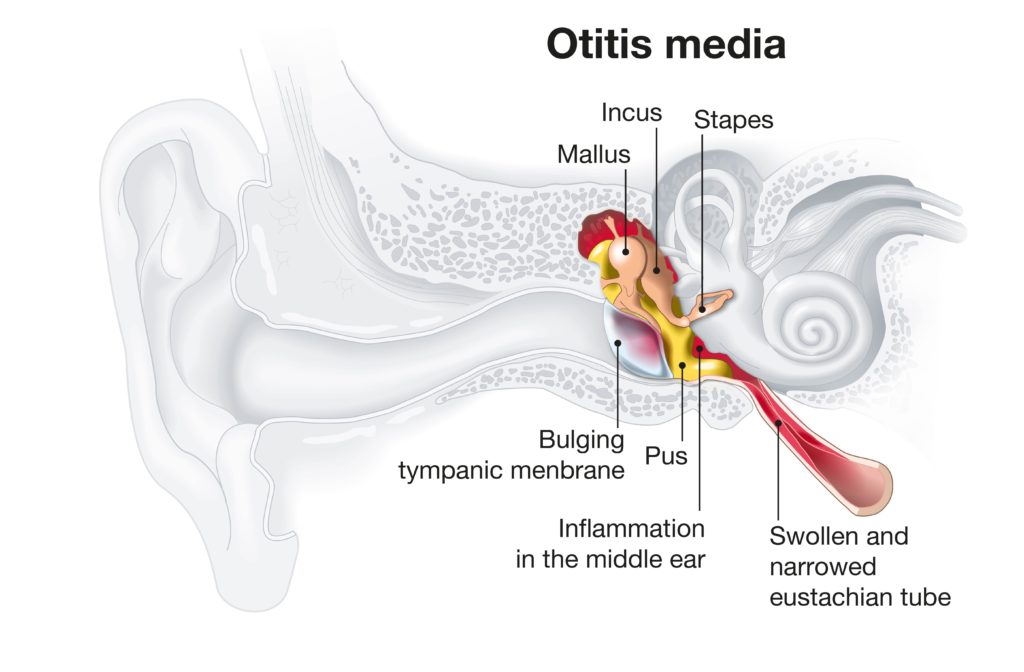If you’ve never suffered from an ear infection, then you are one of the lucky ones as they can be very difficult to deal with. The infection itself can affect your hearing dramatically as well as impact your mental well-being.
It’s important to learn more about ear infections, as you will understand what causes them and the treatments available for them if you ever fall victim to one. If you’re unaware of the above – carry on reading to discover more.
What is an ear infection and how is it caused?
First and foremost, it’s important to clarify what an ear infection is and what causes it. So, ‘what is it?’ I hear you ask. Well, an ear infection is caused by either a virus such as a cold or the flu; or bacterial infections. Usually, they occur within the middle, inner and outer part of your ear, and they can be quite painful to manage due to fluid causing a blockage. An ear infection is quite common to all age groups at different stages of your life, most notably as a child. This is due to the eustachian tubes being small, which connect from each ear to the back of your throat.
About 80% of children suffer from an ear infection, which is a staggering statistic but not one to be concerned about, as the majority of the time an ear infection clears up within a few days. Also, as well as contracting an ear infection through a virus or bacteria, there are other factors which can cause one. Exposure to cigarette smoke, changes in temperature, and recent illness all contribute to ear infections. Interestingly, it’s most common for males to suffer from an ear infection compared to females, as male eustachian tubes are smaller in comparison, allowing bacteria to sneak in the middle ear more easily.
As an adult, it’s vital to pay closer attention to an ear infection as if you don’t the repercussions could be significant. For example, if left untreated correctly, it could lead to hearing loss, meningitis or a ruptured ear drum – all of which are incredibly difficult to treat. If this is your first time experiencing an ear infection we highly recommend you see a doctor, and if it’s a recurring one, we encourage you even more to seek advice. If you don’t, there could be damaging consequences.

Symptoms
Now you understand what it is and how it’s caused, it’s crucial to know how to identify an ear infection. The symptoms you may experience might persist or appear every now and then in either ear, but one thing for certain is if you’re experiencing pain in both ears – this is extremely painful.
So, what are the common ear infection symptoms? Firstly, you may experience sudden hearing loss in either ear which can be very uneasy. This results in the next symptom which is the onset of mild pain or discomfort inside your ear. If you start to suffer from this we urge you to speak to a doctor. The quicker they diagnose the problem the easier it is to treat.
Also, if you feel like there is a persistent feeling of pressure inside your ear, this is a strong sign you’re suffering from an ear infection. Similar to the previous symptoms, if you’re in excruciating pain from this then you must see your local GP. The final symptom you might be experiencing is when your ear starts to produce pus, which is a big indicator of an ear infection.
These symptoms are the most common in an adult, but they do differ slightly from a child. If you’re concerned your child may be suffering an ear infection, then these are the signs to look out for: headache, fever, not reacting to certain sounds and rubbing or pulling their ear. The majority of ear infections in children only last a few days, so there isn’t anything serious to worry about. However, if your child is younger than six months and is dealing with these issues then you definitely need to see a doctor.

Treatment
You’re aware of the causes and symptoms, but now you want to learn more about the treatment options available. Well don’t worry, it’s coming next…
As mentioned previously, ear infections can usually clear up after a few days, but there are a number of treatments you can try which will help clear the infection. Firstly, before contacting a doctor, we recommend you try either: applying a warm cloth over the affected area, taking ibuprofen, using ear drops and avoiding sleeping on the infected ear. Each of these suggestions will help enormously, but don’t be too worried if they prove ineffective as there are other treatments you can choose from.
Another option that might suit you is medical treatment, and this can come in the form of antibiotics. You will be prescribed this if your ear infection is bacterial or chronic, so speak to your doctor about this first before assuming this is the treatment you need. The final option you have is surgery, which only applies to you if the other treatments aren’t removing the infection. During surgery, ear tubes are surgically inserted into your eardrums to drain the fluid out. Afterwards, the holes (inserted in eardrums) can heal over but sometimes it requires surgery to close them.

We hope you’ve enjoyed this article and found it very insightful. If you have any more questions about ear infections, feel free to get in touch with us today!
Or, if you’re struggling with hearing loss and you’re looking to seek advice from a top audiologist. Get in touch with us at The Hearing Specialist!




